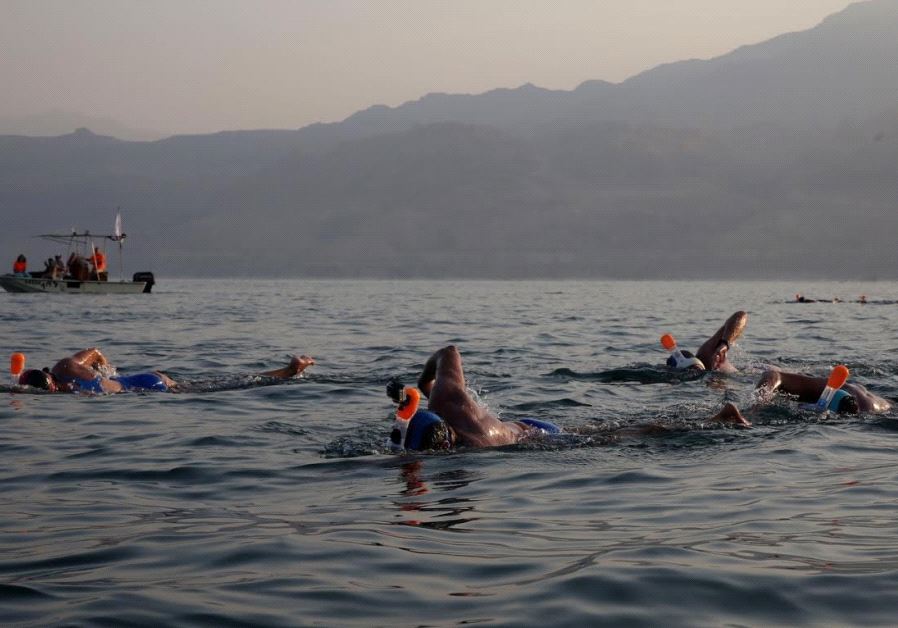Swimming for a cause: From the Dead Sea to the Pacific
“I love sharks,” says swimmer with a heart. “They are a very important creature, but nevertheless, as a swimmer, there is some risk here.”
 Oded Rahav at the November 15 Dead Sea swim(photo credit: GALI TIBBON)Updated:
Oded Rahav at the November 15 Dead Sea swim(photo credit: GALI TIBBON)Updated: